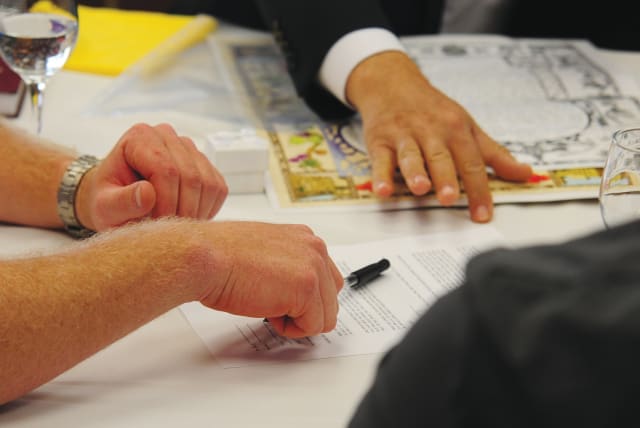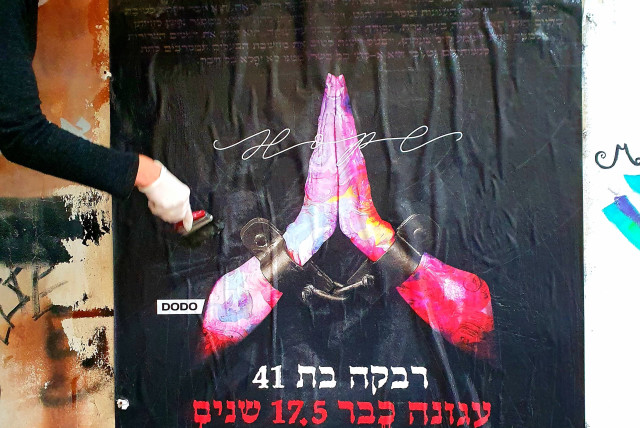Wartime ‘agunot’ - opinion

Preventing wartime agunot tragedies is vital. Learn about the urgent steps needed to safeguard the wives of soldiers in conflict.
International Agunah Day falls yearly on the Fast of Esther, this year on March 21. From the time of King David, attention was paid by experts in Jewish law to the potential problem of wartime agunot.
No less tragic than the cases of “war widows” of soldiers killed in action, leaving behind families, widows, and children, are those of wartime agunot whose husbands are missing in action, captured, or suffering brain injuries. All these wives become husband-less wives, with an undetermined personal status. Living in a state of halachic limbo, these women cannot rebuild their lives since they are still considered married women. Years may go by with the agunah unable to remarry halahically or bring children Jewish children the world – a personal as well as a terrible loss for the Jewish nation.
When sending soldiers into battle, leaders are aware of the inevitability of dreadful losses: death, disappearance, and unbearable wounds. Jewish leaders have the additional knowledge that the wives of some soldiers will face the death of their marriages with no death certificate. Over the centuries, the mechanism for preventing such cases from arising, thus protecting women whose husbands went into battle, has developed from an actual divorce given on certain conditions to a divorce by authorization of proxy – in Hebrew harsha’ah l’get.
Procedures for wartime get delivery
In a wartime “get by proxy,” two sets of instructions are included. Appointments are made for who can act as the husband’s agent to deliver a get into his wife’s hand; which scribe can write the get; and who can serve as witnesses for these actions. Additionally, the conditions for fulfilling these roles are spelled out – usually a time period is set during which no trace of the husband’s whereabouts is found. Following that passage of time, the get is to be administered, thus freeing the agunah to build her life anew.
Rabbi Shlomo Goren, then-chief of the Military Rabbinate of the nascent IDF, in consultation with Israel’s Chief Rabbi Yitzhak Halevi Herzog, developed the text of a get by proxy for use in the IDF in times of war. Rabbi Herzog had authored a prior text during World War II, signed by men who joined the Jewish Brigade and went off to battle in Europe.
Rabbi Goren went a step further, establishing the signing of the document in the IDF in the framework of a “Command of the General Staff #34.0401” which states today: “In order to prevent a woman from becoming an agunah in the event of the death of her soldier husband, in the absence of clear evidence that can be used in the courts as sufficient evidence of his death, any married soldier is entitled to arrange authorization to grant a divorce to his wife.”
The horrific attack of October 7, combined with the ensuing war, has taught Israel the necessity of preparing for and preventing extraordinary calamities. Three crucial steps must be taken. Firstly, a broad spectrum of leading rabbis and experts in halacha must convene to solve the nation’s issue of preventing wartime agunot. The IDF’s harsha’ah l’get must be updated to include the possibility of a wound causing the soldier to fall into a permanent vegetative state (PVS) – a medical scenario which medicine not included in Rabbi Goren’s time.
Secondly, the IDF must include the updated harsha’ah l’get en masse for all married soldiers in the forms signed by soldiers going into battle, at the time of enlistment or during the reservists’ call-up process. When this becomes a routine form included in the IDF enlistment process it will not have a negative impact on morale, much like other forms signed by our soldiers.
In addition, the public should note that there are two different types of documents that can be signed in preventing “wartime agunot” - the harsha’ah l’get in times of war described above for married soldiers, or a document signed at the wedding prior to the huppah ceremony which includes the harsha’ah l’get (among several mechanisms) preventing the agunah situation from arising in times of war and times of peace. These actions will increase peace in Israel’s families.
That document, The Tripartite Agreement – in Hebrew Heskem HaHut Hameshulash – is available at jewishprenup.org. Every marrying couple should autonomously sign this document to prevent compounding heartbreaking tragedies that may befall loved ones.
The writer is the director of the Agunah and Get-Refusal Prevention Project of Young Israel in Israel and the Jewish Agency. She holds a PhD in rabbinic law, is an author of the “Agreement for Mutual Respect” (jewishprenup.org/agreement-for-mutual-respect/), and is the first female rabbinical court advocate to sit on the Israel Commission for the Appointment of Rabbinical Court Judges.
Jerusalem Post Store
`; document.getElementById("linkPremium").innerHTML = cont; var divWithLink = document.getElementById("premium-link"); if (divWithLink !== null && divWithLink !== 'undefined') { divWithLink.style.border = "solid 1px #cb0f3e"; divWithLink.style.textAlign = "center"; divWithLink.style.marginBottom = "15px"; divWithLink.style.marginTop = "15px"; divWithLink.style.width = "100%"; divWithLink.style.backgroundColor = "#122952"; divWithLink.style.color = "#ffffff"; divWithLink.style.lineHeight = "1.5"; } } (function (v, i) { });

